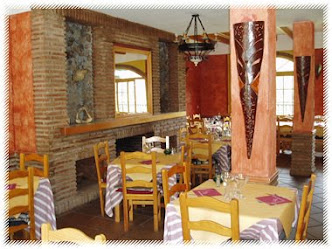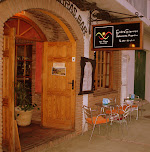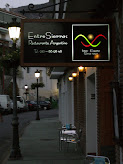The pavement outside a tapas bar in London's Old Brompton Road is a far cry from a bullring in Spain.
But that doesn't stop British writer, actor and amateur matador Alexander Fiske-Harrison from leaping to his feet mid-conversation and demonstrating a series of sweeping passes.
"There is no winning. It's not a fight," he says of the bloody Spanish spectacle. "It's a tragic play in three acts."
Fiske-Harrison, an Old Etonion and Oxford graduate, is following a line of non-Spanish artists to have been captivated by the "corrida de toros" that includes film-maker Orson Welles, critic Kenneth Tynan and, of course, Ernest Hemingway.
His just-published book "Into the Arena" sets out to explain the world of the Spanish bullfight and to examine its moral dilemma --the killing of an animal for entertainment.
It comes out at a time when the corrida is under sustained attack from animal rights activists in Spain and abroad and is feeling the effects of the country's economic crisis.
To get to the heart of the matter, Fiske-Harrison, 34, spent a year living in Seville and training as a matador, learning the cape passes and the technique of killing with the sword.
He took part in more than a dozen "tentaderos" -- private fights at bull ranches aimed at testing young bulls -- and finished by killing a three-year-old Saltillo bull before an audience of 100 spectators last November.
"I had qualms. There was a real possibility it could go horribly wrong. It just seems to me that if you are going to write, let's try to describe it properly. So I went for going over the horns. The moment of truth," he told Reuters.
Along the way he befriended matadors such as Juan Jose Padilla, one of Spain's most fearless, and Cayetano Rivera Ordonez, whose father Paquirri was killed in the ring in 1984 and whose grandfather Antonio Ordonez is one of the all-time greats.
He also hung out with breeders on the ranches where the bulls roam free until their date in the ring, including the Miura family, whose feared bulls have killed more matadors than any other breed.
He also tried his luck running with the bulls at Pamplona's San Fermin festival and will be there again in a few weeks time.
Fiske-Harrison, who wrote and acted in "The Pendulum" in London's West End before embarking on his taurine adventure, agrees with Hemingway's dictum that bullfighting is the only art in which the artist is in danger of death.
But, he says, the corrida is not about blood lust.
"The bull is not scared, it is fighting. It comes down to the elegance of the visual spectacle. The man standing rigid with this raging fury of blood and thunder going past him. And the danger, bringing it closer and closer.
"The matador evokes or inspires emotion in the audience."
Opposition to the bullfight -- not least in Britain -- is often hypocritical, he says. The bull has a better life and no less unpleasant death than beasts that are bred for the dinner table and slaughtered in abattoirs.
"We're not as into animal welfare as we like to think we are. We want a cellophane-wrapped steak from a supermarket. We'd rather not see it die," he says.
A ban on the bullfight would also be an environmental disaster. As well as spelling the end of a species bred solely for the purpose of the corrida, the rugged, unspoiled lands occupied by the ranches would be given over to mass commercial farming, destroying the Spanish landscapes, he says.
LAST SERIOUS THING
The future of the spectacle has come under threat, not just from overseas but also from within Spain by opponents who say that tradition or not, it is a barbaric act that has no place in a modern society.
Last year the region of Catalonia voted to ban it, although the move was interpreted by many as reflecting the desire of separatist-minded Catalans to dispense with culture originating from elsewhere in Spain. Polls also show fewer Spaniards taking an interest in the bulls.
Fiske-Harrison believes reports of the demise of a spectacle that back in the 1930s poet Federico Garcia Lorca called "the last serious thing in the modern world" are premature.
"In 2008 there were more fights than there have been in history. In Andalucia, in the Basque country, in Madrid, it can't die. They love it. Go to Seville in April. It's impossible to get a ticket."
A top matador like Jose Tomas commands huge fees and his scheduled return to the ring in July after recovering from a terrible goring in Mexico a year ago is creating a buzz.
The bigger threat is economic, with fans unable to afford tickets on a regular basis and local councils cutting back on funding bullfights as part of town fiestas.
Still, he says he was "morally agnostic" when he set out on his project and even now is somewhat ambiguous.
Describing the experience of killing the bull, he says: "It's only you and him in the ring. You go through this thing together."
"When the sword went in, I felt I had done something wrong. However, I do not regret it."











